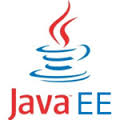Servlet specifications evolved over the period of time. There is lot of improvements has been added to the web deployment descriptor as part of the new versions. It is important for the Java developers to understand the new elements in the web.xml and utilize the added features. In this tutorial I will summarize the sample snippet …
Servlets
Asynchronous Servlet – A new feature in Servlet 3.0 and Java EE 6
When Java EE 6 was announced with a new servlet specification i.e Servlet 3.0 – Asynchronous servlet was a very important feature added to the new specification. Suppose your servlet does a long running task like making a JDBC call or invoking a web service, such operations generally take up a lot of CPU time …
What is load on startup element in web.xml file
specify the order in which we want to initialize various Servlets. Like first initialize Servlet1 then Servlet2 and so on. This is accomplished by specifying a numeric value for the <load-on-startup> tag. <load-on-startup> tag specifies that the servlet should be loaded automatically when the web application is started. The value is a single positive integer, …
ServletContextListener Example
This tips explains the how to use ServletContextListener. There will be only one ServletContext for each web application. ServletContext will be created while deploying the application. Once the ServletContext is created, it will be used by all the servlets and jsp files in the same application. ServletContext is also called as the application scope variables …
New Features in Servlets 2.5
1.Introduction This article presents new features introduced in the Servlet 2.5. Servlet 2.5 is bundled with Java EE 5.0 edition and it has lot of new features. This version has major changes since it has to support the Java 5.0 version for all the J2EE technologies. One of the notable changes will be supporting Generics …
New Features in Servlets 3.0
Introduction This article covers most of the important features available as part of Servlet 3.0 specification. Note that the Servlet 3.0 specification constantly keeps changing frequently with the reviews coming in and the features and the API’s mentioned in this article is based on the specification that is available in JCP for public review as …
Servlet 3.0
Can’t wait to see Servlet 3.0 in action. More details about the specification and the current status is available in its JSR homepage. The introduction of support for non-blocking I/O takes Java Servlets to a new level and this, in my opinion,is the most significant stride in Servlet specification since it was introduced. The benefits …
How to delete a cookie on server in a J2EE application
There is no direct method offered by servlet API to delete a cookie on server side. This is how you can go about doing it. also read: Java EE Tutorials Servlets Interview Questions New Features in Servlets 3.0 Asynchronous Servlets in Servlets 3 Loop through the cookies in the request object to locate the one …


